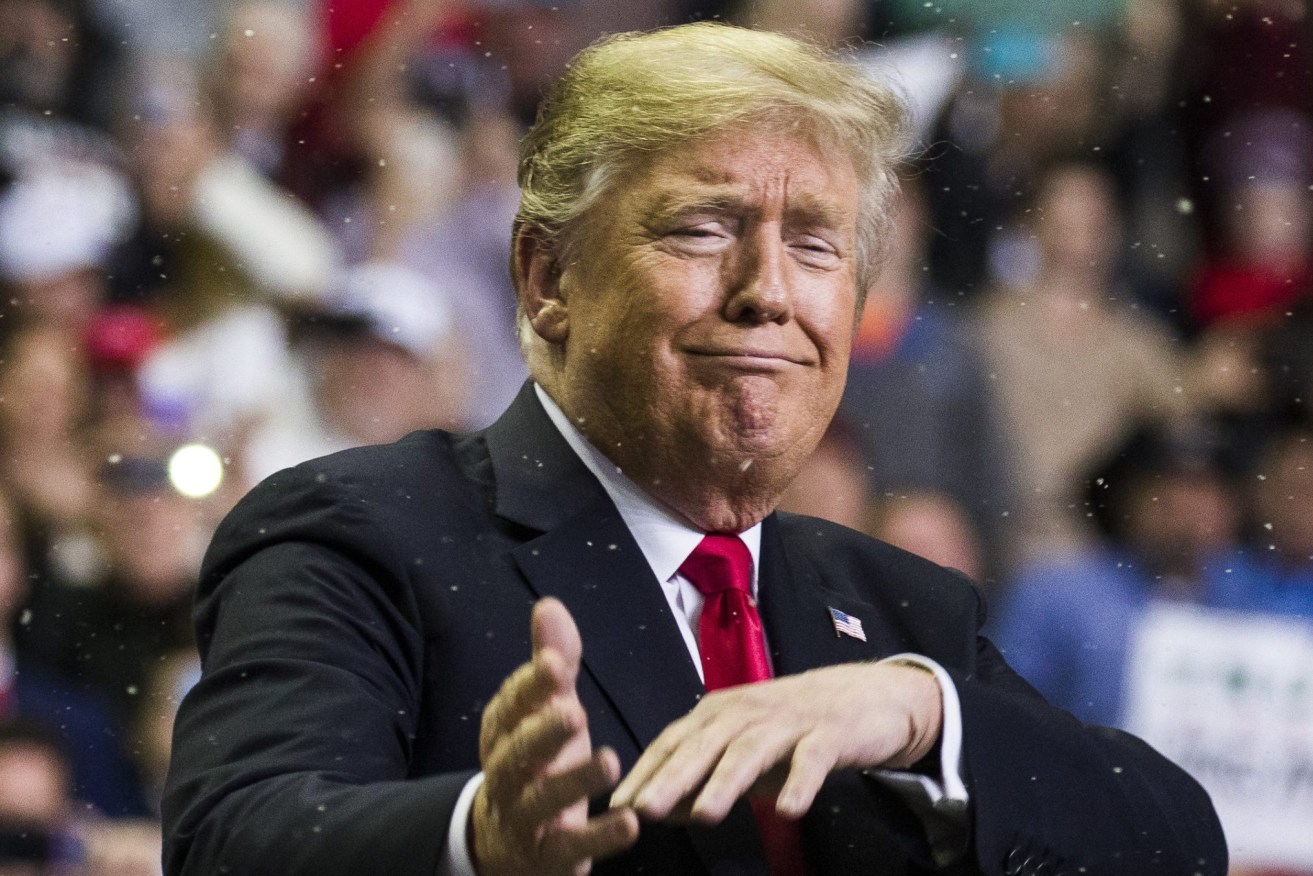The arcane loophole that could let Trump retain control of the White House
If you thought Joe Biden’s massive popular vote majority – and securing the necessary electoral college votes to win the election – are guaranteed to remove Donald Trump from the White House, you might want to think again, writes Michael Bradley


Donald Trump.(Photo: AP Photo/Alex Brandon)
At last count, president-elect Joe Biden was ahead by more than 5 million in the popular vote. Yet Donald Trump is still claiming he actually won “by a lot”, and only four of the 48 Republican senators have come out and acknowledged Biden’s victory.
Most attention is focused on two contingencies in these uncharted seas: Trump’s many legal challenges to the election, which are being filed in and thrown out by the courts daily; and the “what to do?” prospect of his simply refusing to shift his arse out from behind the Resolute Desk on January 20, 2021.
Will the Secret Service have to deploy a forklift? Also, what if Trump, the commander-in-chief of the armed forces until that date, declares martial law?
There is, however, another wrinkle, to which I suspect the Republican hierarchy is applying rather more attention than the question of whether they’ll personally man a machine gun on the White House lawn.
As you’ll know if you’ve been concentrating at all, the US president is not elected by the people. That power is held by the electoral college.
The college will cast its votes on December 14, and under the constitution those votes will conclusively determine who will be the next president and vice-president. The national popular vote has no legal status.
Each state (plus the District of Columbia) “sends” a specified number of electors to the college (which doesn’t physically meet). The number is equal to the total number of members of Congress and the Senate representing that state. As all states have two senators regardless of population, the smaller states have a disproportionately high representation in the college.
The minimum number of electors is three per state, meaning that, for example, Wyoming has four times the voting power of California. The total number of electors is 538, hence the magic number of 270 imprinted in your brain.
The constitution says that each state has absolute power to determine how its electors will vote in the college. As late as 1860, some were still doing it by decision of their state congress rather than a popular vote. These days, all states have a popular vote for the presidential ticket, and that determines how they’ll vote in the electoral college.
You might have noticed that two states always appear on the voting maps with red and blue lines, rather than being coloured just red or blue. Maine and Nebraska use a “district” system for allocating their college votes, so they might be split (and, after this election, are). The other 48 states direct all their college votes on a winner-takes-all basis to the candidate who won the popular vote in that state.
That sounds fine so far, apart from the undemocratic make-up of the electoral college that resulted in Hillary Clinton beating Trump by more than 3 million votes overall but losing easily in the college (because the Democrat vote is heavily concentrated in a few big states while the Republicans own a large swathe of sparsely populated ones).
But then there’s the problem of “faithless” electors. Currently, 33 states plus DC have passed laws that require their electors to cast their votes in the college for the candidate who won the popular vote in their state. Generally, each party will have nominated its slate of electors who will become the electors for that state if their candidate wins. So, mostly, they’re loyally pledged anyway.
However, it doesn’t always work out that way. In the 2016 election, 10 electors attempted to vote in the college against the direction of the state that sent them. That resulted in litigation, and the US Supreme Court just this year ruled that the state laws which direct them to vote in a particular way are enforceable.
Which still leaves 17 states with no such law. Their electors remain unbound by any legal compulsion to vote in the college in accordance with what they promised to do, and there isn’t any obvious remedy if they go rogue.
And there’s a bigger hypothetical: a whole state legislature going rogue. As the constitution gives the power absolutely to each state to appoint its electors, the possibility remains that a Republican-controlled state legislature might decide to depart from the result that the popular vote would dictate.
Pennsylvania, for example, whose 20 electoral college votes took Biden over the line, has a Democrat governor but a Republican majority congress. What if the latter, following Trump’s insistence of electoral fraud, voted to override the certified outcome and send 20 Trumpian electors to the college?
Constitutional crisis is the what. But, remember, the constitution does not, anywhere, say that the president is elected by the people. The president is elected by the college, and the college is a creature of the states.
It’s unlikely. However, if you think the Republicans aren’t war gaming this right now, you definitely haven’t been concentrating.
This article was originally published by Crikey and is republished with permission.












